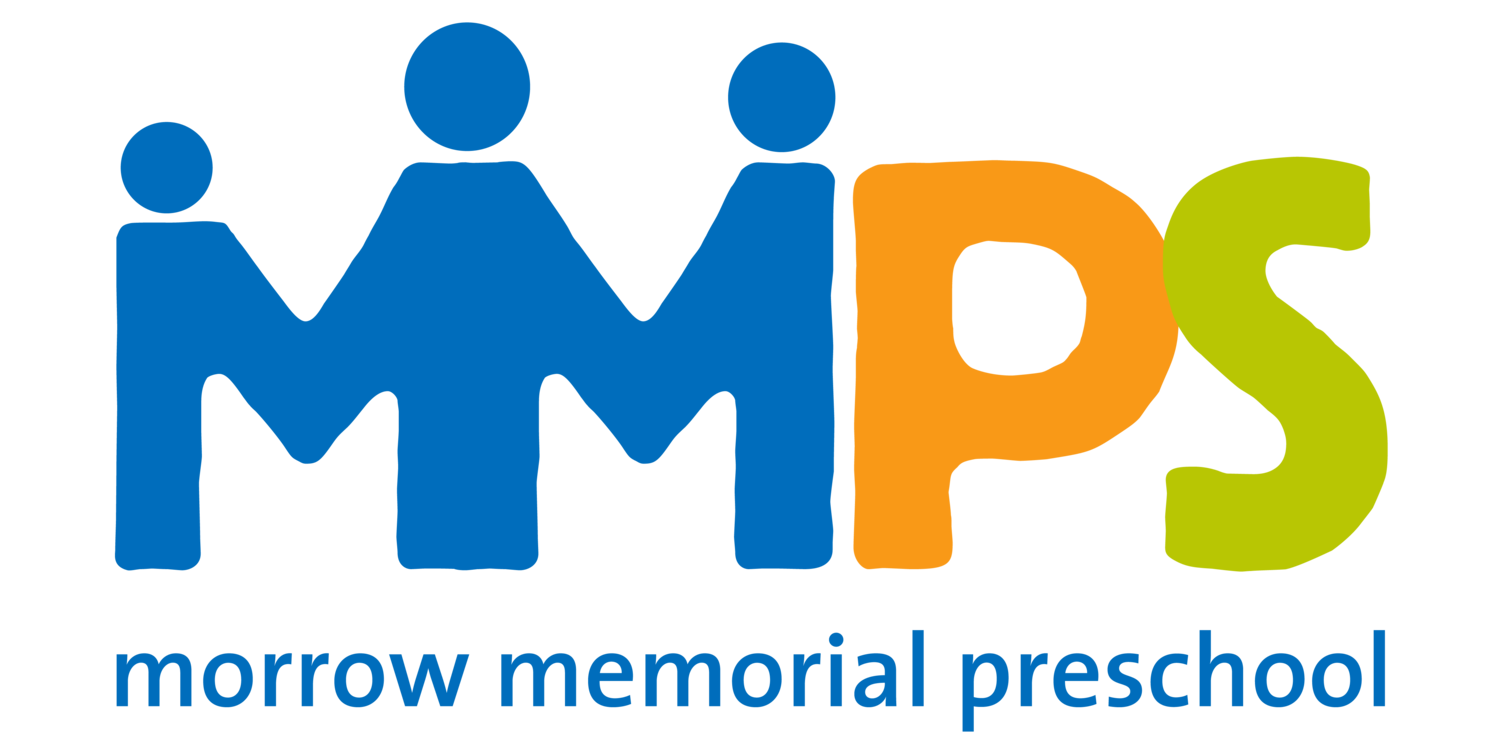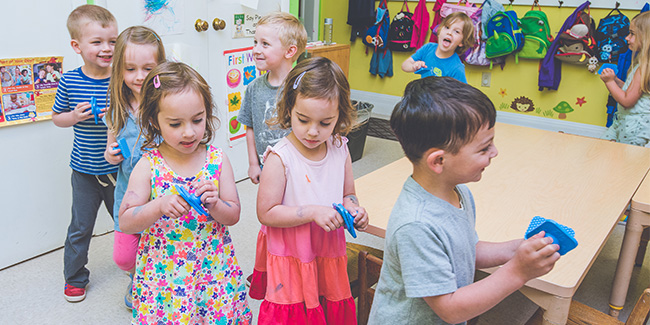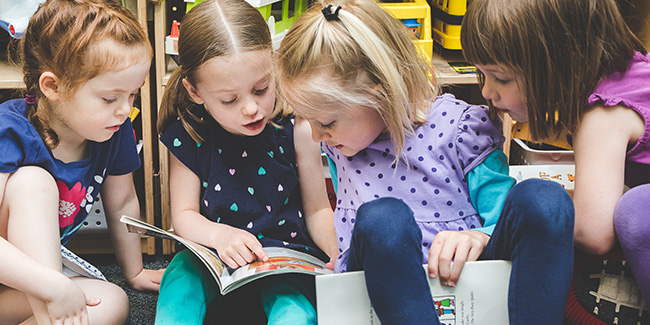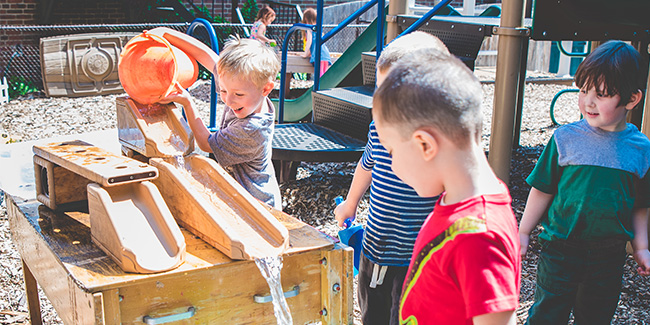Play-based Curriculum
At Morrow, we follow a play-based learning approach. Through both planned experiences and free play we provide a relaxed and interesting place for children to learn at their own pace and in the ways that are best for them…so that they are ready for Kindergarten and beyond.
Our play-based approach is based on early education models and research. Our teachers are all accredited members of The National Association for the Education of Young Children (NAEYC). Learn more about the importance of play-based early education at NAEYC (http://www.naeyc.org/play).
Development Goals
The most important goal of our early childhood curriculum is to help children become enthusiastic learners. This means encouraging children to be active and creative explorers who are not afraid to try out their ideas and to think their own thoughts.
Social
To help children feel comfortable in school, trust their new environment, make friends, and feel like they are a part of the community.
Cognitive
To help children become confident learners by letting them try out their own ideas and experience success, and by helping them acquire learning skills such as the ability to solve problems, ask questions, and use words to describe their ideas, observations, and feelings.
Emotional
To help children experience pride and self-confidence, develop independence and self-control, and have a positive attitude toward life.
Physical
To help children increase their large and small muscle skills and feel confident about what their bodies can do. Children can and should learn the importance of safety practices and limitations.
Activities
The activities we plan for children, the way we organize the environment, select toys and materials, plan the daily schedule, and talk with children are all designed to accomplish the goals of our curriculum and give your child a successful start in school.
Creative
The use of paint, clay play dough, water, finger paints, and provide children with the opportunity for experimentation and self-expression rather than a finished product. Blocks of all sizes offer physical and social activity according to individual development: construction, adventure, risk, and destructive impulse.
MUSIC
Music is experienced by children in a wide variety of ways that tie into the other parts of the curriculum: listening to songs, creating sounds with rhythm instruments, singing songs, dancing, and creative movement.
SCIENCE
Curriculum includes hands-on work and observation of seasonal changes, plants, and food preparation. Children also study animals in their natural or zoo habitats.
LANGUAGE, LITERATURE, AND CUSTOMS
Children practice using language for social communication and to develop the art of listening. Story time stimulates an interest in literature through stories, books, flannel board stories, and puppets. Classes anticipate and plan for occasions such as Halloween, Thanksgiving, Christmas, Valentine’s Day, Easter, and birthdays to gain understanding of holidays and cultures.
COGNITIVE AND CONCEPTUAL
Children join in activities and games to aid in learning color, letter, and number skills as well as conceptual activities including comparative concepts, shapes, measurement, position or location, contrasting conditions, and body parts.
PHYSICAL AND GROSS MOTOR
Children are given many opportunities to use gross motor skills including climbing apparatus, balancing boards, large and small blocks, trikes, and wagons.
COMMUNITY
Children learn the importance of consideration for others through meeting and observing various people who work in the community such as police officers, fire fighters, first aid squad members, postal workers, and dentists.
At MMPS, we are committed to fostering kindness, empathy, compassion, and stewardship in children of all ages. We provide a monthly service activity and encourage all of our families to participate in these meaningful, hands-on service projects which support the larger community.
Field Trips
Field trips are planned to enhance the classroom activities and highlight the seasons of the year.
Some of the places our classes have visited in past years include: the Town Library, Words Bookstore, the Fire Department, the Post Office, Trailside Nature Center, Morris Museum, Memorial Park, SOPAC and Train Trips.













